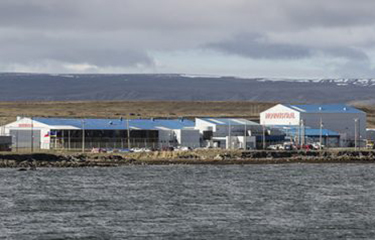Sweden-based private equity firm Altor has purchased U.S. private equity firm Bain Capital’s stake in the struggling Punta Arenas, Chile-based salmon farmer, Nova Austral.
“Altor Fund III GP Limited has today signed and closed the acquisition of Bain Capital’s stake in Nova Austral SA through the parent company Albain Holdco,” Altor said in a brief statement sent to the Oslo Børs. It did not reveal the price it paid for the stake.
In mid-October 2022, a representative of one of Nova Austral’s bond providers, Nordic Trustee, recognized that the salmon farmer was traversing a “challenging” liquidity position, with the company seeking an additional USD 8.5 million (EUR 8.7 million) in new cash equity, on top of the USD 15 million (EUR 15.4 million) Altor Fund III and Bain Capital had injected into the company in December 2021.
The company has a history of financial and operational missteps. In May 2013, Pesca Chile, a subsidiary of Pescanova and the parent company of Nova Austral, was declared bankrupt with debts of some USD 70 million (EUR 71 million), and its assets were frozen.
In September 2014, an affiliate of Norway-based feed supplier Ewos signed an agreement with the bankruptcy trustee to acquire Nova Austral, under the agreement that Nova Austral would settle its outstanding receivables of approximately USD 40 million (EUR 40.6 million) to the Ewos Group, owned by Altor and Bain Capital.
Following that purchase, Nova Austral made waves when it announced the launch of farming center operations in the cold, pristine waters found in Alberto de Agostini National Park in the far south of Chile – near the 60th southern parallel, and one of the areas in South America closest to the continent of Antarctica. Nova Austral named the new operation Sixty South, after the farms’ geographic latitude. It said that state-of-the-art technology, tested in Norway, would keep Nova Austral salmon healthier and free of antibiotics, and that they would suffer fewer fatalities from ISA virus.
In 2016, Sixty South received Aquaculture Stewardship Council certification, and in 2017, the firm’s salmon received yellow rating from Seafood Watch, making it a “Good Alternative" under the group's sustainability rating system. Nova Austral ramped up roduction after it built a new hatchery allowing it to forego purchasing smolt from external producers, making it completely integrated and allowing for egg-to-plate traceability.
However, in 2019, Chilean newspaper El Mostrador published an investigative story showing evidence Nova Austral’s had reported false mortality figures. Dubbing the scandal “Salmon Leaks,” the newspaper also discovered that Nova Austal had used heavy machinery to adulterate the heavily affected seabed to hide its anaerobic condition and deceive authorities into allowing further salmon farming activities in the biologically damaged marine spaces.
In June 2019, Chile’s National Fisheries and Aquaculture Service (Sernapesca) began investigating the company's alleged underreporting of mortalities and soon thereafter filed three formal complaints against the company for falsification of data. As a result of the scandal, the Aquaculture Stewardship Council stripped Nova Austral of its certification and the Monterey Bay Aquarium Seafood Watch program disassociated itself from the firm.
It has faced additional regulatory scrutiny since then.
In September 2021, Chile’s environment regulation agency, SMA, fined Nova Austral CLP 1.23 billion (USD 1.26 million, EUR 1.28 million) – the highest fine it had ever levied for environmental rule-breaking in the Magallanes region – for inadequate mortality and solid-waste management at the company's Aracena 19 grow-out center, located inside the Alberto de Agostini National Park. SMA authorities labeled the company a “serial offender.”
In response, the company said it had completely restructured its internal management and regained international certifications to guarantee its compliance with global sustainability standards.
In July 2022, SMA accused Nova Austral of overproduction between 2015 to 2017 at three salmon grow-out centers in the Alberto de Agostini National Park. In response, it moved to revoke the environmental license for those centers and apply a fine for the artificial alteration of the seabed at another center.
Due to those sanctions, the company provided a lower stocking estimate of between 4.5 and 5.5 million salmon smolts this year, compared to its previous projection of between 6.5 million and 7.5 million smolts. In Q2 2022, Nova Austral said its sold volumes over the previous 12 months had fallen to 11,700 MT WFE from 21,800 MT WFE a year ago, a 56 percent drop, which it attributed mainly to a decrease in the volumes of raw material purchased from third parties.
The company has also said that it may be forced to close operations throughout the country if sanctions levied by the SMA are allowed to go forward.
Nova Austral quarterly revenue decreased 42 percent to USD 16.7 million (EUR 17.2 million) versus the USD 28.6 million (EUR 29.4 million) it posted in Q2 2021, mainly due to the lower volumes sold, partially offset by a 19 percent increase in its average price per kilogram. Its net losses for the quarter more than quadrupled to USD 18.5 million (EUR 19 million), compared to USD 4.3 million (EUR 4.4 million) in Q2 2021.
Photo courtesy of Nova Austral







